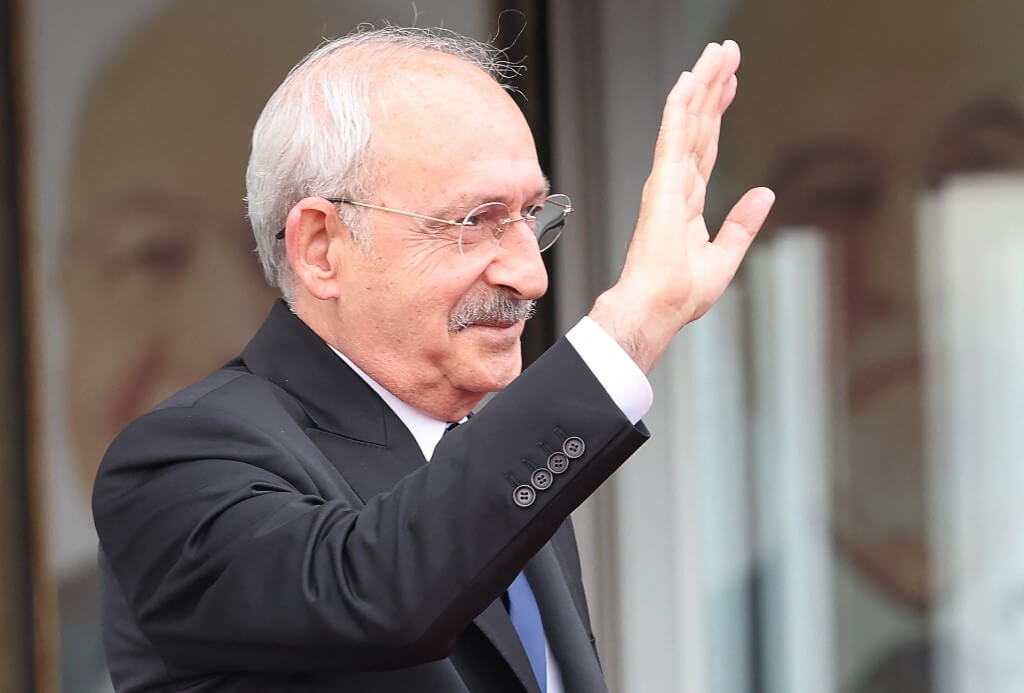It took more than a decade and some bitter defeats for Kemal Kılıçdaroğlu to secure the Turkish opposition’s trust and become its torchbearer in May’s crucial parliamentary and presidential polls.
For better or worse, the 74-year-old former civil servant’s bookish ways have stood out in sharp contrast to President Recep Tayyip Erdoğan’s brash and bombastic style.
But Kılıçdaroğlu, an ethnic Alevi who has led the Republic People’s Party (CHP) since 2010, has worked hard to sharpen his image — while transforming his party’s rigid line.
Under his aegis, the leftist Republican People’s Party (CHP) – established by the mostly Muslim country’s secular founder Mustafa Kemal Atatürk — has embraced minority groups it once kept on the sidelines, including the Kurds.
At the risk of outraging the party’s rank-and-file, Kılıçdaroğlu has also forged alliances with right-wing parties and championed socially conservative women’s right to wear headscarves at school and work.
A former close colleague, Rıza Çelikkol, described Kılıçdaroğlu as “very hardworking and disciplined”, while others have dubbed him “Turkey’s Gandhi” for his soft-spoken manners.
‘March for justice’
Kılıçdaroğlu, who prefers to be known as “the quiet force,” took years to hone his tone and make a meaningful national impact.
One of his defining moments came in 2017, when he launched a “march for justice” from Ankara to İstanbul to protest the jailing of a CHP member of parliament.
At the time, few dared to stand up to Erdoğan, who was busy unleashing purges that saw tens of thousands jailed or stripped of their government jobs in the wake of a failed 2016 coup.
The march allowed Kılıçdaroğlu, who studied finance and headed Turkey’s social security system before unsuccessfully running for İstanbul mayor in 2009, to emerge as a leader not afraid to confront Erdoğan.
Two years later, Kılıçdaroğlu’s CHP swept to power in Turkey’s most prized cities, including Ankara and İstanbul, where it ended 25 years of rule by Erdoğan and his predecessors.
Kılıçdaroğlu’s tone hardened and confidence grew on the back of these unexpected wins, which cracked Erdoğan’s aura of political invincibility.
“This is my fight for your rights,” Kılıçdaroğlu proclaimed last year from the darkness of his apartment, its power cut after he refused to pay the bills in solidarity with others suffering from Turkey’s years-long economic crisis.
‘Mr. Kemal’
Kılıçdaroğlu has since developed a knack for showing up unannounced at government buildings, the media in tow, demanding to see ministers about various social grievances.
He has charged the statistics agency with cooking the books to hide the true scale of Turkey’s runaway inflation, and accused business bosses of enriching themselves through plump state contracts.
Kılıçdaroğlu also came out swinging after a massive earthquake killed more than 46,000 in Turkey and 6,000 in Syria last month, accusing the government of lax buildings standards and corruption.
Despite these seeming successes, even his own backers question whether Kılıçdaroğlu possesses the kind of charisma needed to take on Erdoğan — a tireless campaigner who comes alive on stage.
Born in the historically rebellious eastern Tunceli province, which has a Kurdish and Alevi majority, Kılıçdaroğlu could struggle to win over conservative Sunni voters that make up the core of Erdoğan’s support.
Not respecting certain rites of Islam, Alevis have faced discrimination and even massacres in the dominantly Sunni country.
If elected, Kılıçdaroğlu would be the first Alevi to head the Turkish state.
Somewhat dismissively, Erdoğan refers to Kılıçdaroğlu as “Bay Kemal”, or Mr. Kemal, an informal form of address rarely used in adult conversations.
Married with three adult children and now a grandfather, Kılıçdaroğlu once described the early years of his life with his wife Selvi as “modest.”
“We didn’t have a fridge, washing machine or dishwasher,” he once recalled.
© Agence France-Presse
